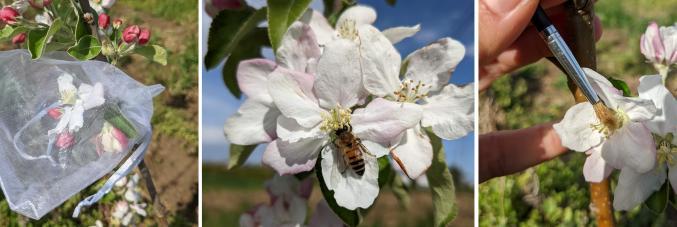
Unipd research: the best pollinators come from nature
08.08.2023
Recently published in Nature Communications by Elena Gazzea and Lorenzo Marini of the University of Padua Department of Agronomy, Food, Natural Resources, Animals and Environment (DAFNAE), the study entitled Global meta-analysis shows reduced quality of food crops under inadequate animal pollination, quantifies the effect of pollinators on crop quality through a global scaled meta-analysis of a statistical technique using a quantitative synthesis of existing literature.
Researchers conducted a systematic literature survey collected from scientific databases using the data of 190 independent studies from 48 countries across 48 different crops. They studied the effect of animal pollination by comparing the quality of fruits produced with and without pollinators based on shape, size, appearance, taste, and nutritional properties.
The results show that animal pollination plays a fundamental role in determining the quality of agricultural production. Fruits pollinated by animals have an average of 23% better quality, proving that the quality of a fruit depends on the presence of pollinating animals.
Animal pollinators also influence organoleptic characteristics, such as the shape, size, and shelf life of fruit and vegetables after harvesting, whereas they have less effect on nutritional value. The benefits of animal pollination on quality are independent of geographic regions and pollinator species. The data analyses also highlighted signs of non-optimal pollination, perhaps resulting from the decline of pollinators across agricultural landscapes, which may compromise production quality. Generally, managed pollinators such as the honey bee, both in the field and protected crops, maintain the highest quality fruit and vegetable production.
Prof Lorenzo Marini explains, “The results of our study offer important implications for the agricultural food sector. The quality of unprocessed foods, such as fruit and vegetables, is based on standards mainly related to their aesthetic appearance and shelf life. Fresh produce with suboptimal pollination has repercussions throughout the agricultural production chain, from the income of farmers and producers to consumer perception of quality and their eventual buying power.
The production of imperfect and short-lived fruits increases the waste of foods rich in nutrients, weighing on the rate of land conversion and the eventual satisfactory outcome of the agricultural and food industry.”




